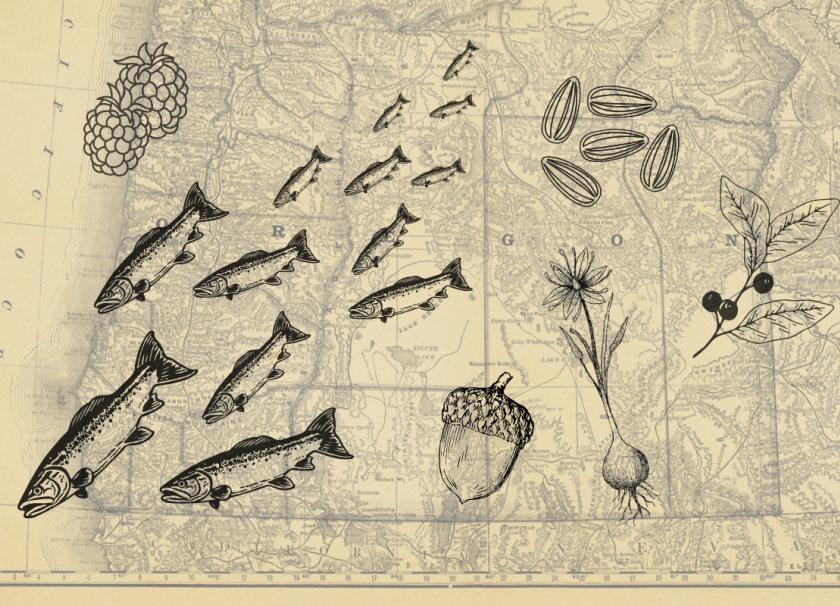
Celebrating Indigenous Food and Traditions
Each October, when so many across the country celebrate Indigenous Peoples' Day, the Ashland Food Co-op pauses to reflect on the land we call home, the people who've cared for it, and how food and connections to the land can help us return that inheritance in a positive way. This holiday isn’t just a request that we correct the record of history, but that we also plant a greater sense of home, appreciation, and responsibility. In southern Oregon, that means exploring the histories and teachings of the Shasta, Takelma, Latgawa, and other tribes whose ancestral lands include what is now Ashland.
Indigenous peoples in our region lived prior to Euro-American settlement in a deep relationship with food cycles and place. In the Rogue Valley and along the Table Rocks, the Takelma were sometimes called “Dagelma,” meaning “those who dwell by the river.” Life revolved around the waters and the changing seasons. Salmon filled their nets, while wild roots, berries, seeds, and game rounded out their meals. As the seasons changed, they followed the rhythms of the land, moving between elevations to fish, gather, hunt, and carefully store what they would need for the months ahead. Their activity wasn’t just for survival, but for reciprocity: farming soils, burning to maintain open meadows, incubating plant habitats, and honoring areas of ceremony. Their ways of tending the land remind us that we still have much to learn about balance, respect, and stewardship.
Deep disruption came in the mid-1800s: the Rogue River Wars of 1855–1856, when numerous Indigenous communities were forcibly relocated, treaties were violated, and war and disease devastated populations; the brief existence of the Table Rock Reservation was formed and abolished; and numerous descendants of these groups found themselves caught up in confederated treaties or relocated to other reservations. In spite of this break, Indigenous families still reside here, remember, revive language, and preserve cultural food traditions throughout Oregon today.
Food is one of the most powerful connections we have to memory, respect, and the planet itself. Here in Oregon, "first foods" like salmon, roots, berries, and game are still central to Indigenous food sovereignty.This work in southern Oregon centers on renewal: restoring native plants, rebuilding traditional harvesting, and restoring both cultural connections and care for the earth. By the fact that co-ops are community, we can be the change by learning about Indigenous foodways, finding Indigenous-grown produce when possible, and supporting organizations that uplift Native voices.
Indigenous Peoples’ Day reminds us that honoring the past is not only about memory, but also about the actions we take today. We encourage you and our community to become conscious of whose territory you stand on, to contribute financially to Native nonprofits, and to buy at Indigenous food producers. There's something good we can do towards reciprocity, justice, and healthier relations with people and places.
Sources:
- OSF Ashland Land Acknowledgment: https://www.osfashland.org/land-acknowledgment
- BLM Table Rocks History: https://www.blm.gov/programs/recreation/recreation-activities/oregon-washington/tablerocks/cultural-history/regional-tribes
- Rogue River Wars: https://en.wikipedia.org/wiki/Rogue_River_Wars
- Table Rock Reservation: https://en.wikipedia.org/wiki/Table_Rock_Indian_Reservation
- Travel Oregon – Indigenous Foods: https://traveloregon.com/things-to-do/culture-history/celebrate-oregons-indigenous-foods/
- My Oregon – Indigenous Foodways in Southern Oregon: https://www.myoregon.gov/2022/12/20/how-indigenous-communities-are-reclaiming-knowledge-and-relationships-to-first-foods-in-southern-oregon/
More Co-op News
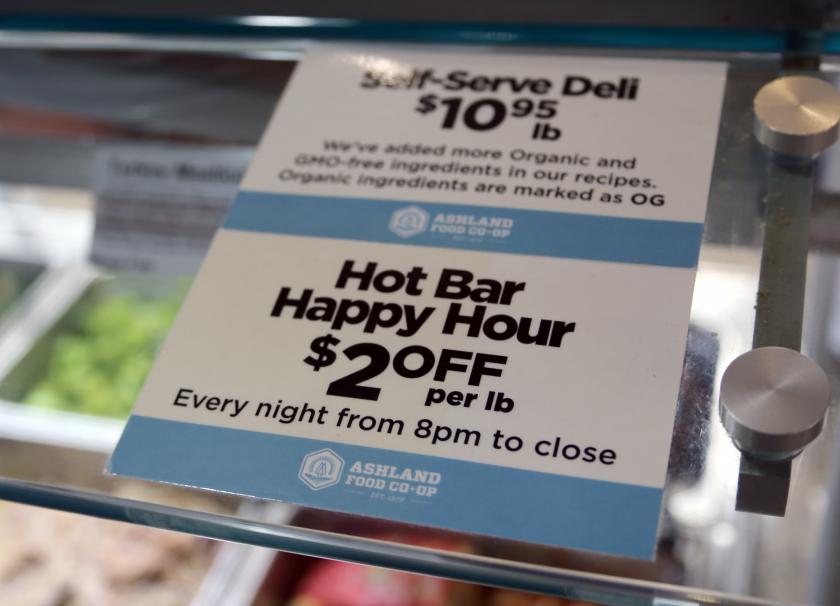
5 Fresh Ways to Save at the Co-op
We’ve all been there: your bank account is looking thin after a month of celebrations, but you’ve made a New Year’s resolution to save up for a big purchase later in the year
Now’s the time to make some changes to your spending - but that doesn’t mean you have to skimp on quality goods at the Ashland Food Co-op.
These are some lesser known ways to save at the Co-op. Think of them like ordering off the secret menu.
Savings Level: $
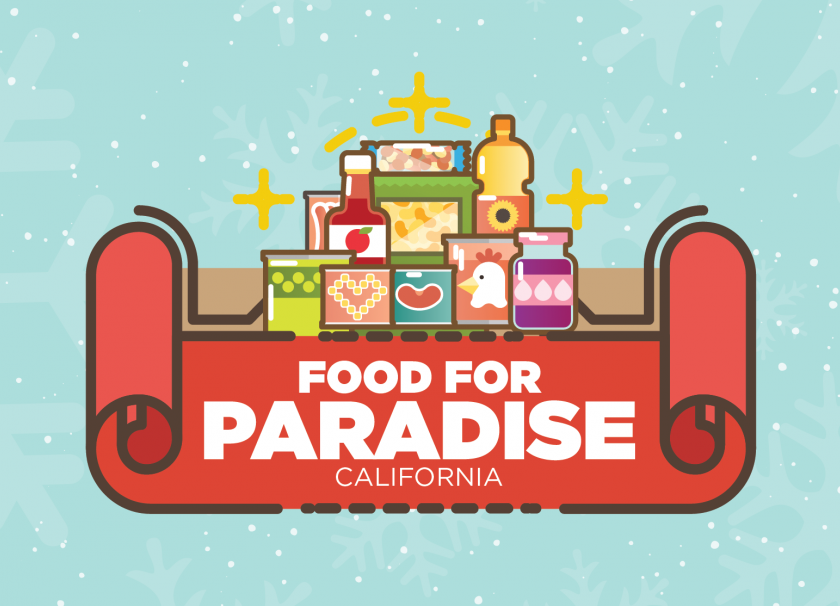
Board Report: How "Food For Paradise" Got Started
By Mira Wonderwheel, Board of Directors
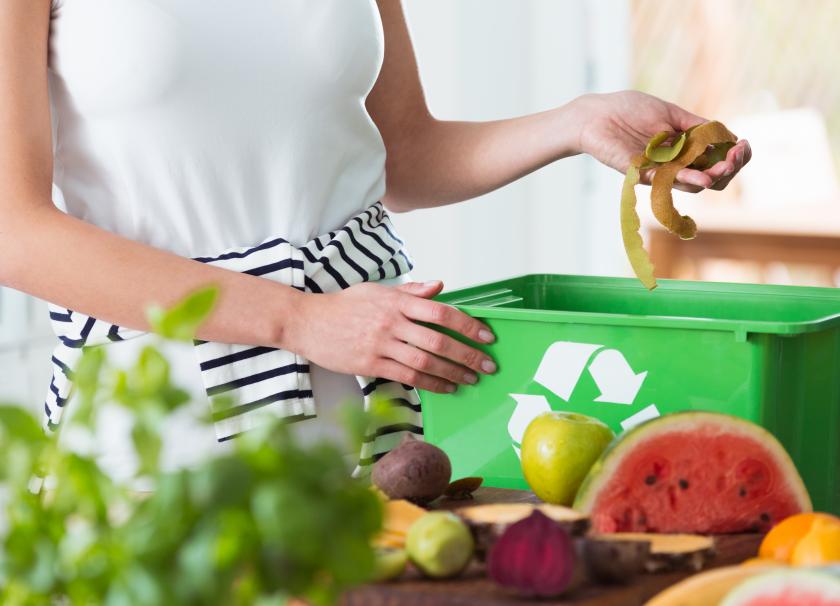
4 Ways to Reduce Your Food Waste
It’s the New Year, our favorite time for goal-setting, making positive resolutions, and shifting our impact. One of the Co-op’s goals is to become a Zero Waste facility. Our staff works to divert as much food waste as we can - and we hope our member-owners will join us in this goal too.
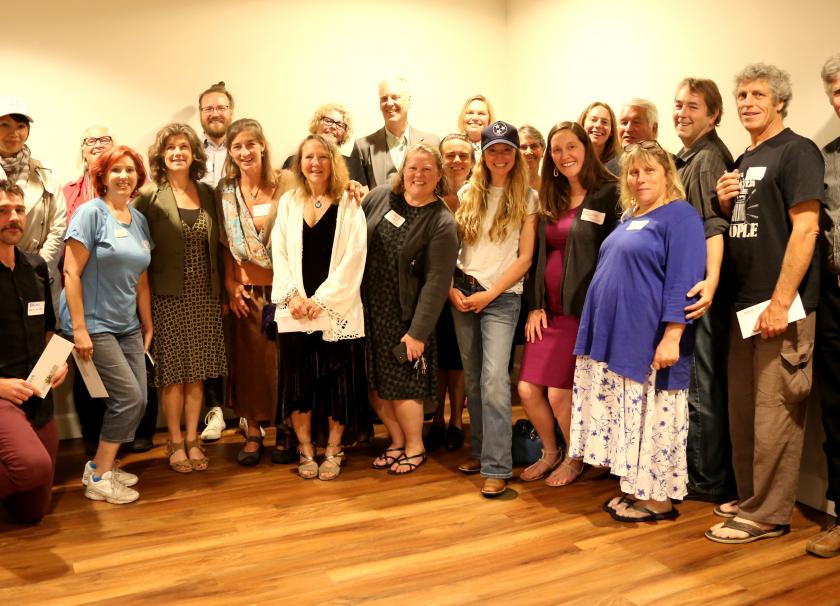
2019 Community Grant Applications
The funding cycle for the 2019 Co-op Community Grants for nonprofit organizations begins in February.
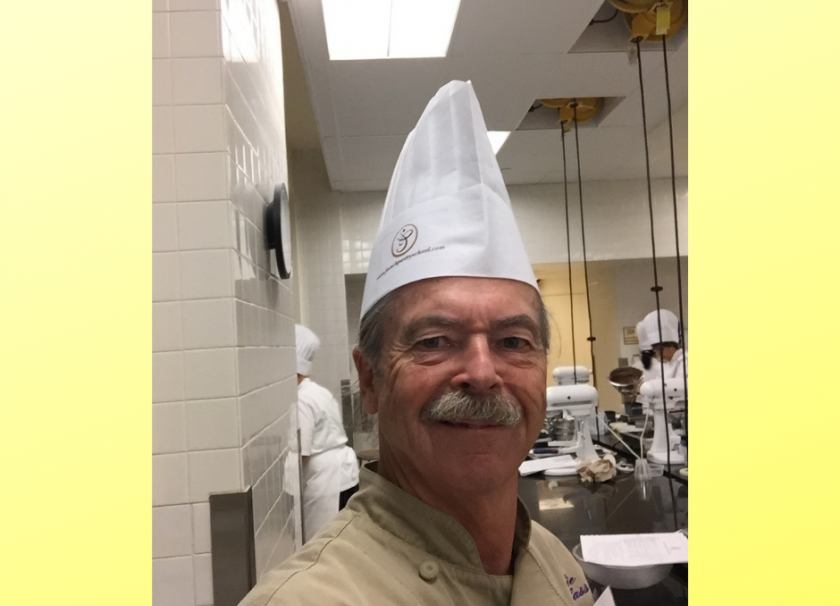
Meet Cooking Class Instructor Charlie Douglass
Many talented local chefs share their expertise in the Co-op Kitchen. Charlie Douglass is no exception. As the former Master Chocolatier at Harry and David, Charlie knows a thing or two about chocolate and candy making.
Tell us how your love of cooking and food began.

Meet Cooking Class Instructor Tiazza Rose
Tell us how your love of cooking and food began.
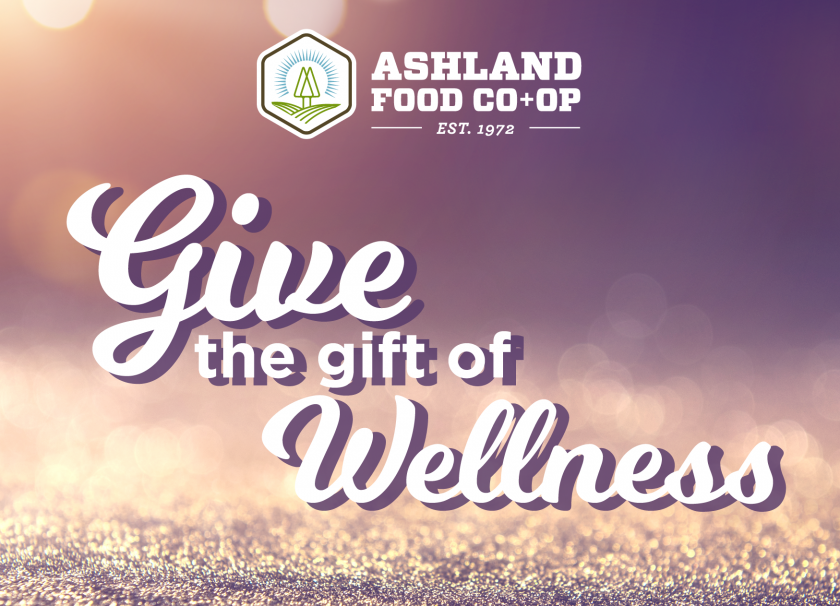
Give the Gift of Wellness
Finding the perfect gift for a friend or loved one is an art. This winter, we carefully selected these assortments for those who love some good self-care, are working in partnership with their gut health, or for those making efforts to reduce their pain. Each of these gift ideas will help you make your loved ones feel extra special and extra healthful.
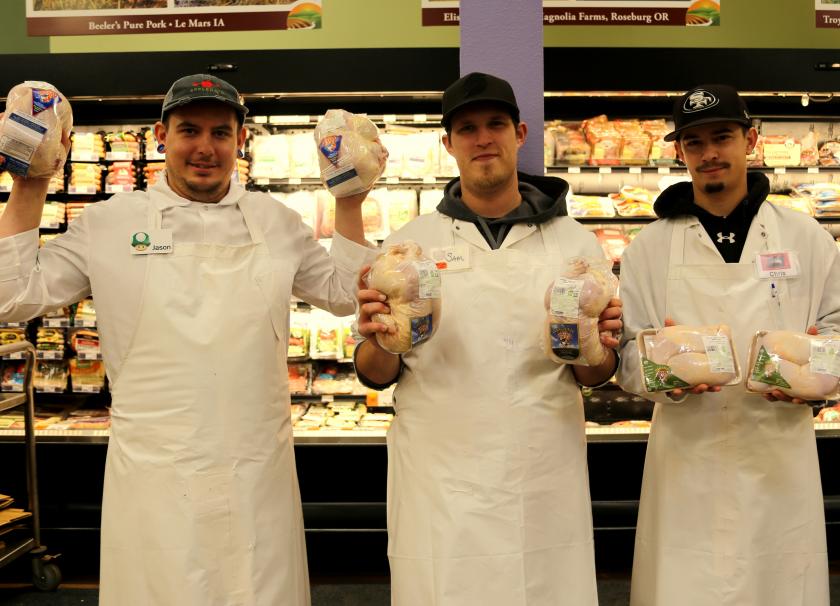
Give the Gift of Good Food
During the month of November, Co-op shoppers can nourish their own families and help fight hunger in the Rogue Valley. We’ve teamed up once again with Smart Chicken® for the Smart Giving Holiday Challenge.
Here’s how it works.
-
For every 10 pounds of Smart Chicken® you purchase from the Meat Department or the Deli, Smart Chicken® will donate one pound of chicken to a local non profit
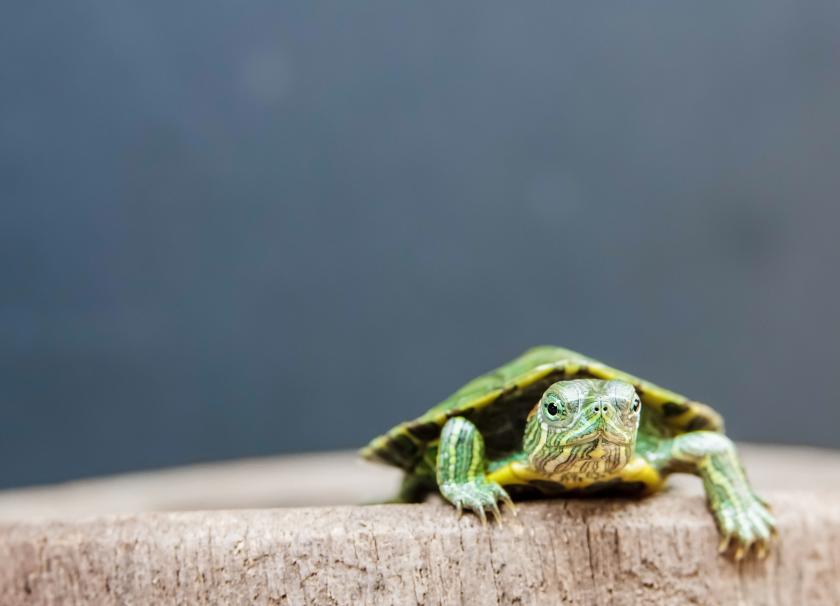
We're All Turtles
By Dean Williamson, Board of Director
My grandmother loved to talk. Oh, could she talk! And she had one expression that I’ve always really liked. “If you come across a turtle on top of a fence post, you can be pretty sure it didn’t get there by itself.”

The Power of Principle Seven
By Emile Amarotico, General Manager
As we approach the holidays, I’d like to invoke the spirit of the Seventh Cooperative Principle: Concern for Community. The International Cooperative Alliance defines Principle Seven as when “cooperatives work for the sustainable development of their communities through policies approved by their members.”
So how does that work? How does Ashland Food Co-op demonstrate concern for community?
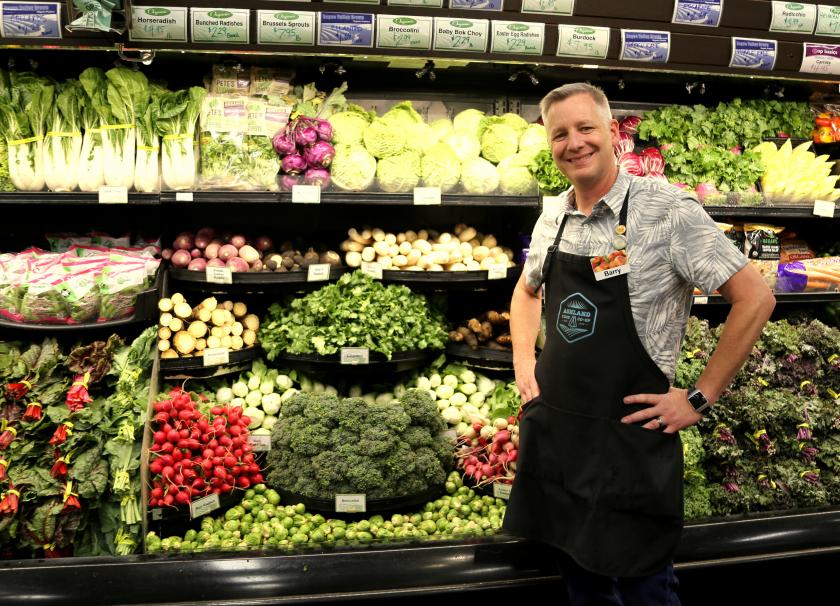
The Co-op is Certified Organic! What does that mean?
By Barry Haynes, Store Manager
Did you know that the Ashland Food Co-op is the only Certified Organic Retailer in southern Oregon. Well, that’s great! But what does that actually mean?
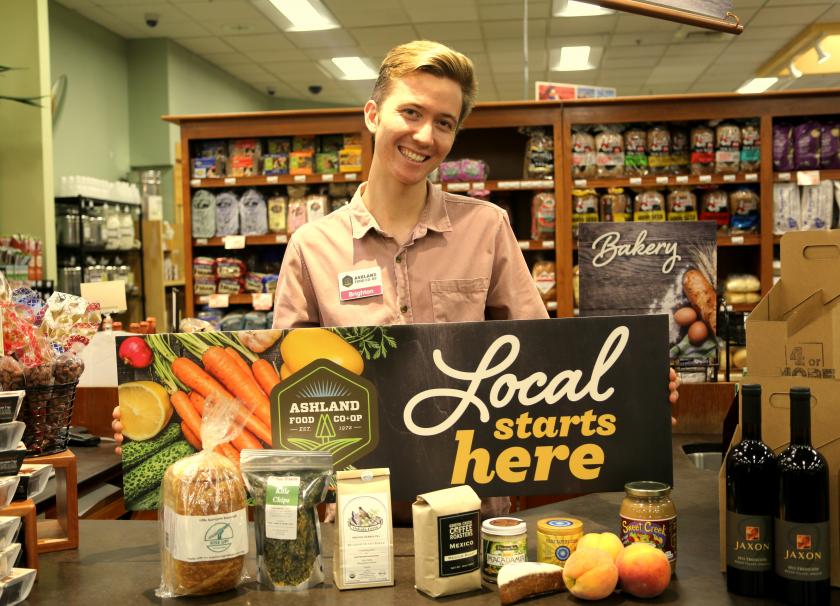
Love Local with the Local Guy
Throughout September, we will be celebrating all things local. And no one loves local or is more local than our Temporary Demo Coordinator, Brighton Litjens. He was basically raised at the Co-op, has a strong passion for local farmers and producers and loves delighting shoppers with delicious samples and great deals. Who better to tell us about loving local than the "Local Guy" himself?
Tell us a bit about yourself.
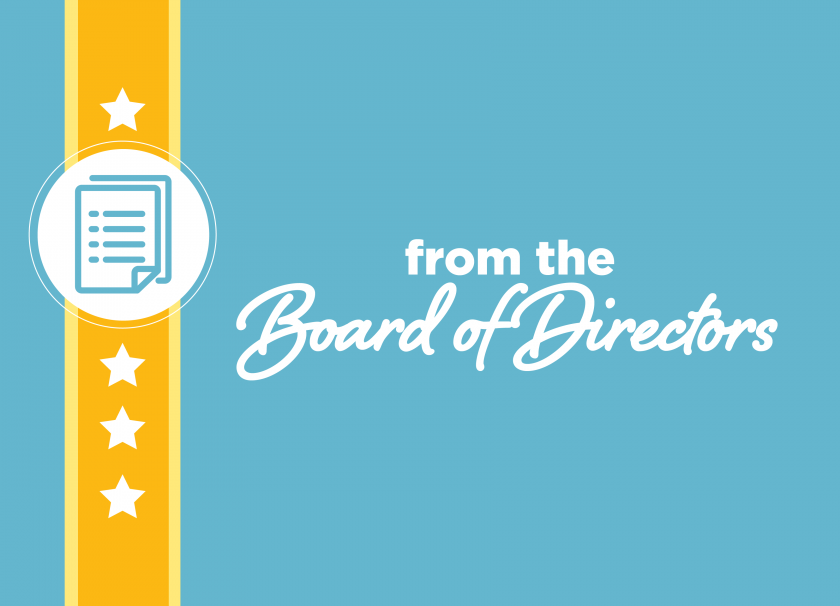
Owner Benefits: Independence and Connection
By Julie O'Dwyer, Board Secretary, Chair of the Owner Engagement Committee
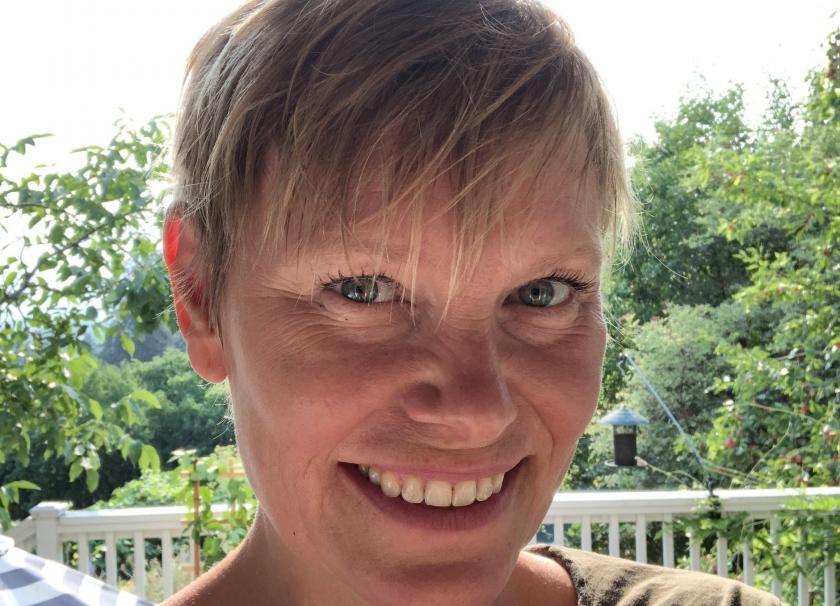
Meet Board of Director Trine Ostergaard
Trine Ostergaard is a newly elected Ashland Food Co-op Board of Director. She brings a world, literally, of experience to the table and has a sincere passion and love for the Co-op. We are thrilled to have her aboard and asked her to answer a few questions.
Tell us a little bit about yourself.
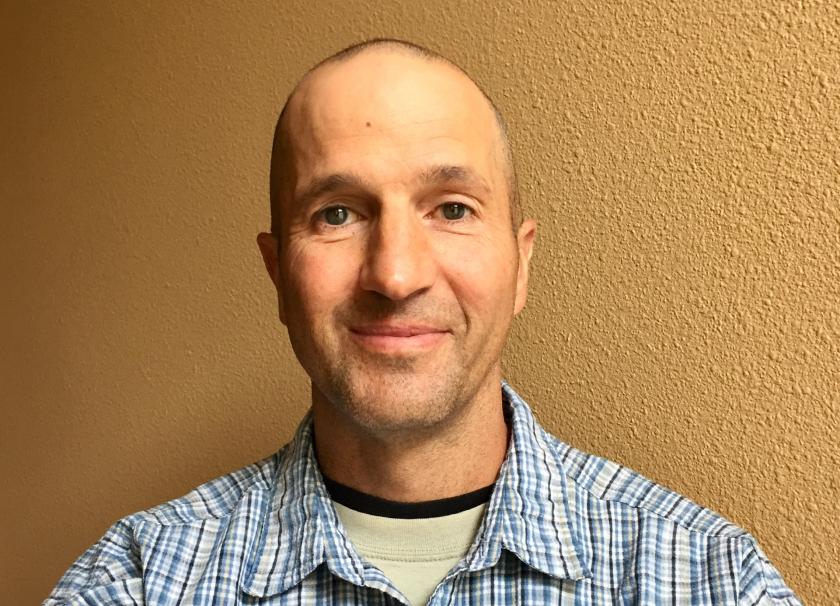
Meet Board of Director Dean Williamson
Dean Williamson is a newly elected Ashland Food Co-op Board of Director. He brings to the table a plethora of co-op experience and a love of chocolate chip cookies. We are thrilled to have him aboard and asked him to answer a few questions.
Tell us a little bit about yourself.
